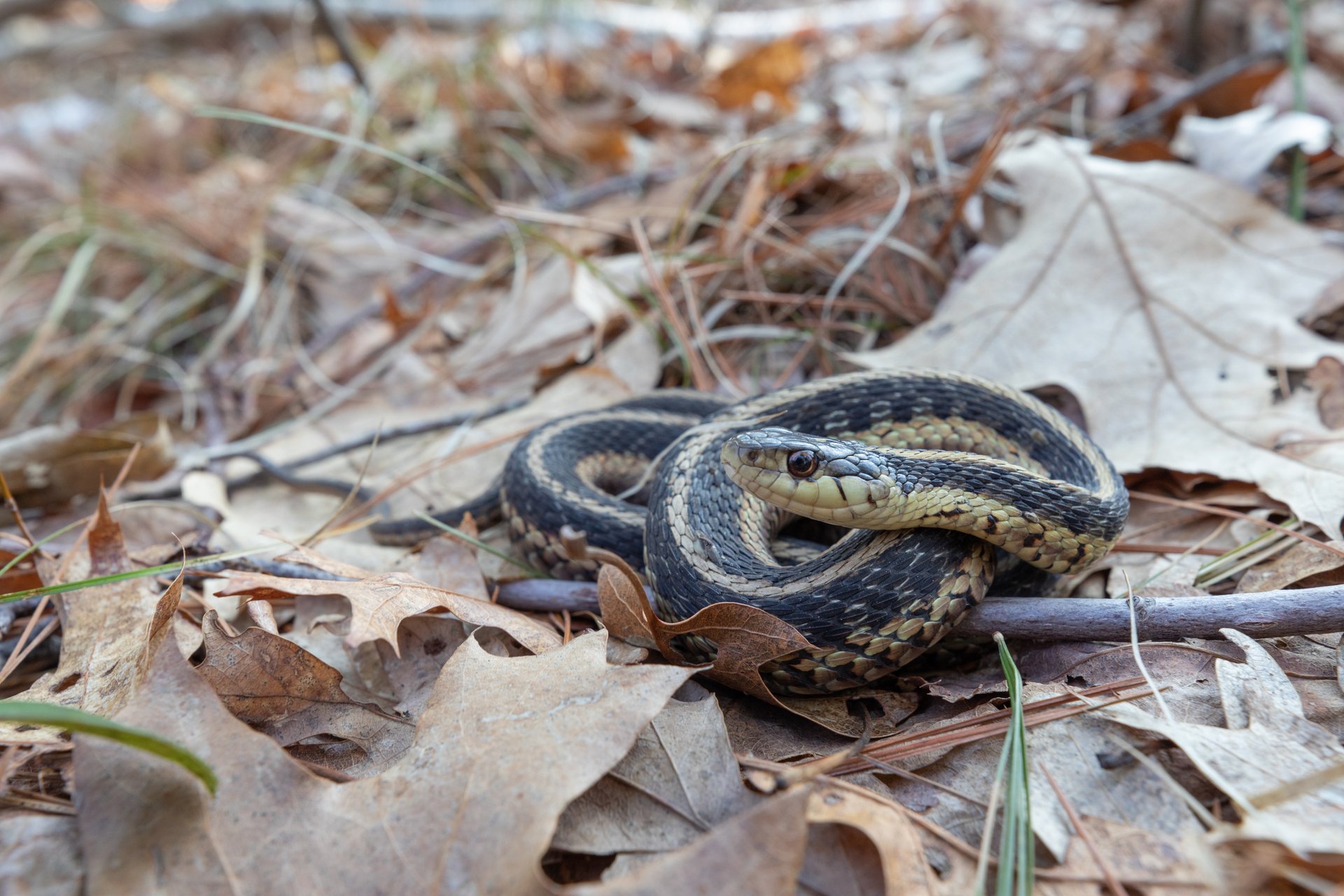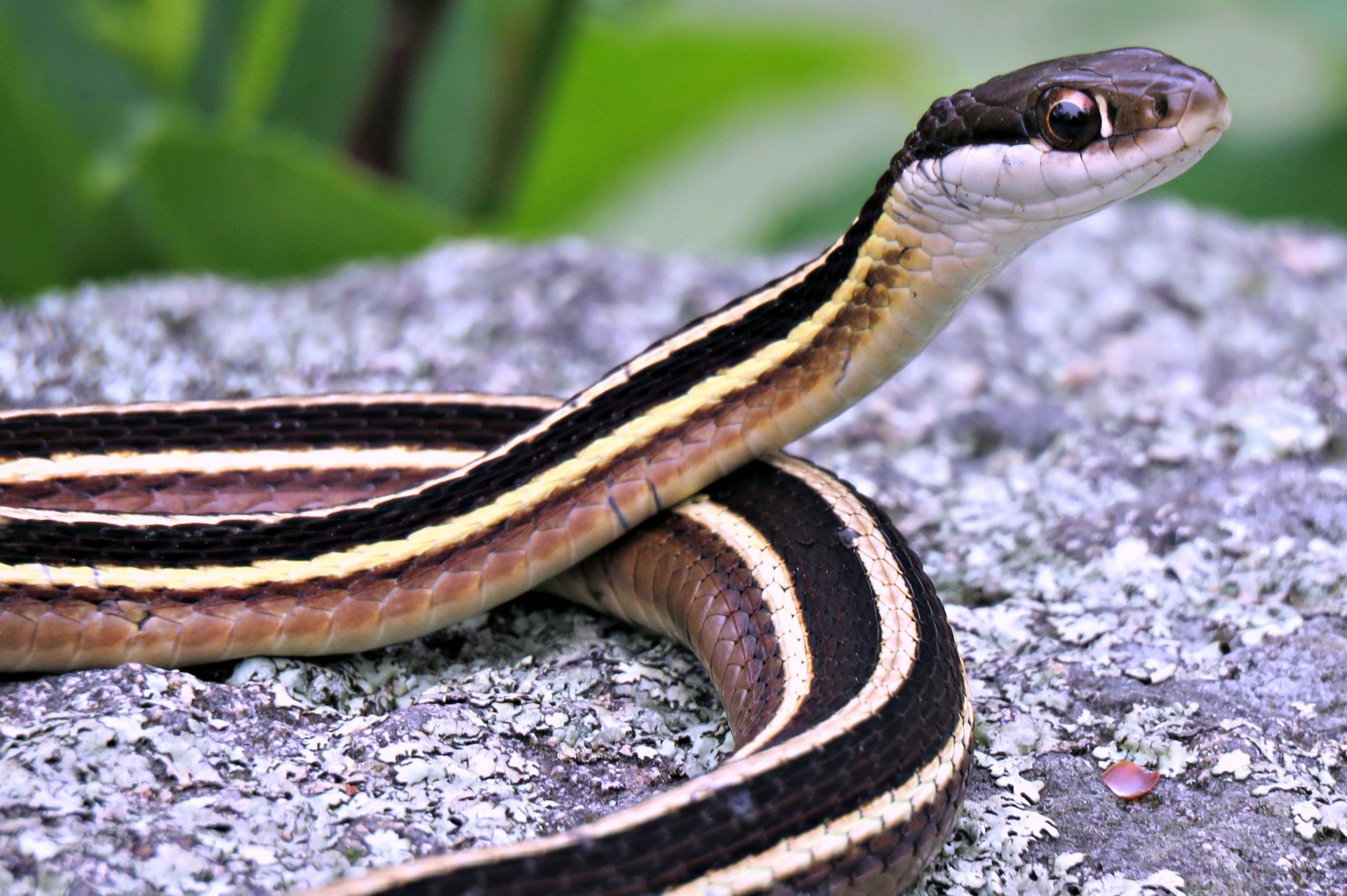How to Tell a Garter from a Ribbon Snake
September 01, 2022
Sitting on a rock in the hot sun is a yellow-striped snake soaking in the sun. With only a glance before it slithers away, it’s hard to determine what type of snake it was. The distinct yellow lining is a feature on both Eastern Garter Snakes and Eastern Ribbon Snakes. So how do you tell them apart? Learn more about how to differentiate these two reptiles.
How to Identify an Eastern Garter Snake
Sometimes mistakenly called a “garden snake,” garter snakes get their name from a female under garment, the garter belt. They sport long, yellow stripes down the length of their green, brown, or black bodies. Sometimes, their stripes are not well defined and appear to be more checkered than a prominent line.
Although they can get large with an average of about 20-22″ in length (and can grow up to 54″ long), there is no need to worry: garters are generally shy and avoid people.
As one of the most common snakes, they can be found just about anywhere, including in gardens, forests, and parks. These snakes are so common, they’re even the Massachusetts state reptile.
How to Identify an Eastern Ribbon Snake
Like the garter snake, ribbon snakes have long yellow stripes against their dark body, but there are a couple of key differences. Eastern Ribbon Snakes have a white mark just in front of the eye, which is absent in the garter snake. Additionally, ribbon snakes have a more slender body and longer tails, which account for about one-third of their bodies.
Ribbon snakes prefer to live near wetlands and waterbodies and can even be found swimming for food. They, too, are shy and nonvenomous, but typically harder to find.

Eastern Garter Snakes sport long, yellow stripes down the length of their green, brown, or black bodies. Sometimes, their stripes are not well defined and appear to be more checkered than a prominent line.

Eastern Ribbon Snakes have a white mark just in front of the eye, which is absent in the garter snake.
Snakes in Massachusetts
Ready to learn more about snakes? Though snakes often get a bad rap, the vast majority of species aren’t venomous. They also provide a valuable service by eating potential pests, like mice and slugs.
In fact, snakes have more to fear from us than we do from them. Many species have suffered from persecution and habitat loss. Three snake species are listed as Endangered in Massachusetts, and one is listed as Threatened.
Stay Connected
Don't miss a beat on all the ways you can get outdoors, celebrate nature, and get involved.


